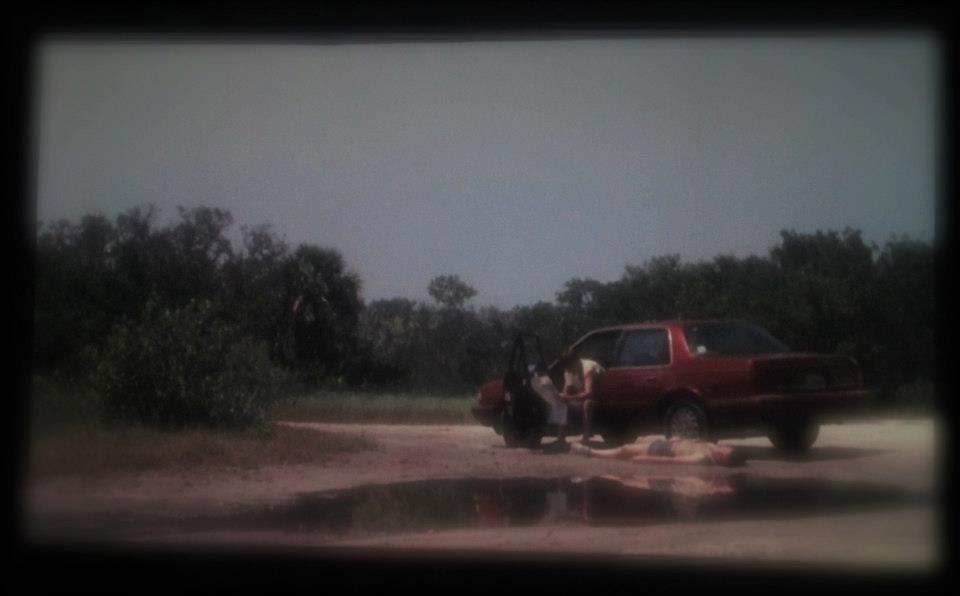You know right off from the opening images of Amy Seimetz’s SUN DON’T SHINE that this is another tale of what is called in our political parlance “red America” and its characteristic pathologies: domestic abuse, gun violence, incest, broken homes, and the like, all of which are statistically higher than in the “blue America” that sends its revenues to help out its red cousins in their afflictions (who nurse the insupportable belief that just the opposite is the case). In this context it is easy to understand the cosmopolitan appeal of films like Winter’s Bone and SUN DON’T SHINE, which make a connection between culture and pathology with no need to comment upon or state it explicitly.
Seimetz’s film is ostensibly a crime drama, but what it constitutes is a sort of cultural immersion that is ethnographic and anthropological as much as it is artistic, and since that which is ordinary in one’s own culture feels banal, what results is a species of art that ironically appeals to those outside the culture rather than those within it. Two young people drive through central Florida worried about how to get rid of something (the nature of which is easy enough to guess) in the trunk of their beat up car. In the opening scenes the young woman is resisting whatever plan has been cooked up and is wrestled in mud and water to a state of exhaustion and consent by her illicit lover. This imagery, and the references to the swamps of the Everglades as a solution to their problem, add to the film’s atmospheric thickness.
This calls to mind Clifford Geertz’s decades old notion of “thick description” in ethnography; it was inaccurate to market SUN DON’T SHINE as a thriller, which implies a focus on plot at the expense of a broader cultural grounding (as in, for example, Body Heat or The Postman Always Rings Twice). Films like SUN DON’T SHINE and WINTER’S BONE are more about making a cosmopolitan audience feel what it is like to be in a culture thicker than their own, if only because it portrays one that is geographically concentrated and into which its members tend to be born. Cosmopolitan culture is a lighter, less contained sort of experience, based on variety and a looser conception of place; indeed mobility, geographic and economic, is one of its defining traits. AJ Bowen and Kate Lyn Shell are deeply engaging as the young couple; that they are mired not only in the potential consequences of what they have done, but in the social, cultural and economic milieu that led to it, is palpable.
Perhaps someone has thought of the phrase “thick filmmaking” before (I should be shocked if the idea is original to me), but be that as it may, Seimetz’s muddy Florida drama is exemplary of what it could be.
Check listings for viewing options.
